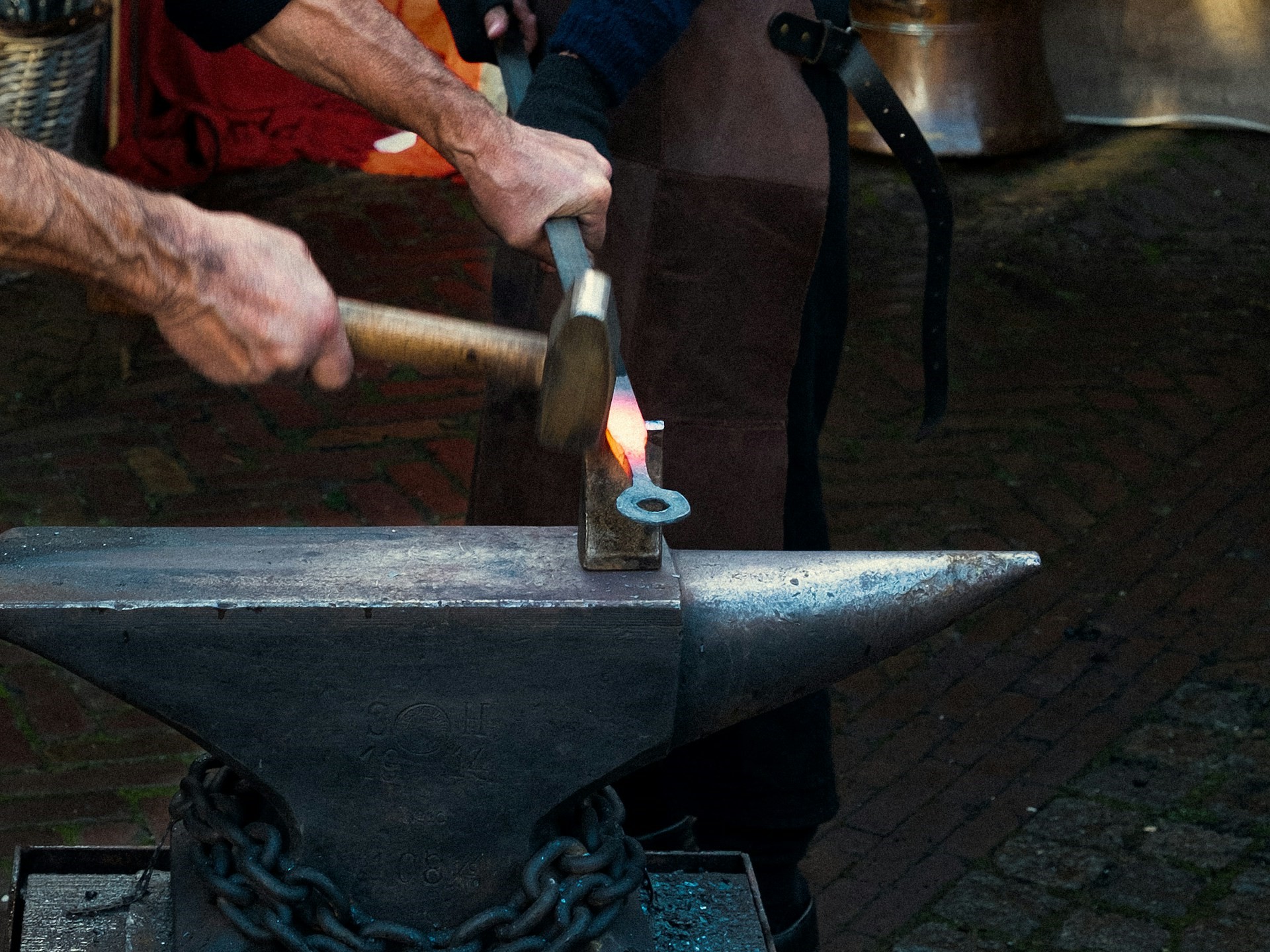Last Sunday I had the joy of being with the lay Dominicans at Our Lady of Grace Monastery in Guilford, Connecticut. I myself am in the process of becoming a lay Dominican, currently in a temporary profession. Some of us sat outside the monastery grounds in front of a statue of St. Dominic.

As we were studying, I was thinking about St. Dominic, as his feast day (August 8) was just recently. I remember a particular quote that St. Dominic once said when I first learned of him as a saint:
“A man who controls his passions is master of his world. We must either control them or be enslaved by them. It is better to be a hammer than an anvil.”
Since childhood, I have always had a hard time managing my anger. Spending time in training to become a Dominican friar helped me learn more about the anger in my life and how best to deal with it. As a husband and father, these life events bring new situations in which anger can be expressed: disagreeing with your spouse, disciplining your child, waiting for a response from family, etc.
Anger as passion
Edward Sri in an article “Anger and Virtue” notes that anger is neither bad nor good in itself. “It can be noble when it is directed toward upholding justice and correcting vice. Anger can be thought of as a passionate desire to set things right in the face of a perceived evil.” What Sri notes here is that anger is about protecting what is good. With this understanding, we can gain greater insight into Jesus’ treatment of those selling oxen, sheep, and doves in the Jerusalem Temple as the Passover approached:
“He made a whip out of ropes and drove them all with the sheep out of the temple area and oxen, and spilled the money of the money changers and overturned their tables, and And to those who sold doves, he said, “Take these away, and do not make my Father’s house a marketplace any longer.” (John 2: 15-16)

Thinking about anger as Sri explains it helps me understand the importance of circumstances and intention. St. Dominic said that a man who controls his passions is master of his world. When someone gets angry, he needs to understand the environment he is in. What circumstances lead to one becoming angry? The other important point to consider is intention. What is one’s intention when one is angry? If one can ask oneself these two questions, it is a good opportunity to keep oneself under control.
Command or be enslaved
Saint Dominic goes on to say that we can either give them orders or let ourselves be enslaved by them. I am reminded of what Saint Paul said to the church in Ephesus: “Be angry, but do not sin; do not let the sun go down on your anger, and give no place to the devil” (Ephesians 4:26-27). The Catechism of the Catholic Church notes the following about passions:
“They are only morally qualified insofar as they use reason effectively andill. Passions are described as voluntary, “either because they are commanded by the will or because the will places no obstacles in their way.’ The perfection of the moral or human good requires that the passions be controlled by reason.” (No. 1767)
When we are angry, the most important thing is what the anger causes us to do. In addition, it is important to pay attention to what triggers our anger. Sri notes:
“Being angry about the right things and in the right way is virtuous. But avoiding anger about All times can be a sign of weakness. Saint Thomas Aquinas points out that not being angry about things that one should be angry about is a vice. He calls it “unreasonable patience.” Failure to correct the wicked encourages them to persist in their evil deeds, since there is no rebuke for their wrong deeds. It also causes confusion in the community about what is really right and wrong, and so can lead even good people to do evil.”
This brings us to the last part of the quote, that it is better to be a hammer than an anvil. I understand that it is OK to get angry and that we need to allow that anger to drive us in a constructive way. Here we take an active role and strike the hot metal like a hammer. On the other hand, when we become the anvil, we take a passive role and fall into unreasonable patience. As mentioned earlier, this passivity causes evil to persist and confusion to arise.
Saint Jerome and dealing with anger

One saint I venerate is Saint Jerome, priest and Doctor of the Church. His greatest contribution was the Latin translation of the Holy Scriptures, the Vulgate. Saint Jerome was no stranger to dealing with anger. In his correspondence with others, he came across as unkind due to his insults, caustic words and resentment. Since he was a learned man, his pride was the root of his anger. He overcame his anger through penance, carrying a stone around with him and beating his chest with it whenever he became angry.
Saint Jerome directed his passions and gifts to learning and love of the Holy Scriptures. Pope Francis writes in the apostolic letter Scriptures of the Holy See“Thus, in his pursuit of knowledge, which marked his whole life, he profitably used his youthful studies and his Roman education and directed his learning to the greater service of God and the ecclesiastical community.”
If we reflect on St. Dominic’s quote and St. Jerome’s example, anger is a passion that moves us. If our response is properly directed, directed toward God and love of neighbor, it can be virtuous. There are ways for us to overcome anger, perhaps by doing penance, but the most important thing is to draw closer to God and allow this invitation to use our gifts rather than surrendering to sin.

